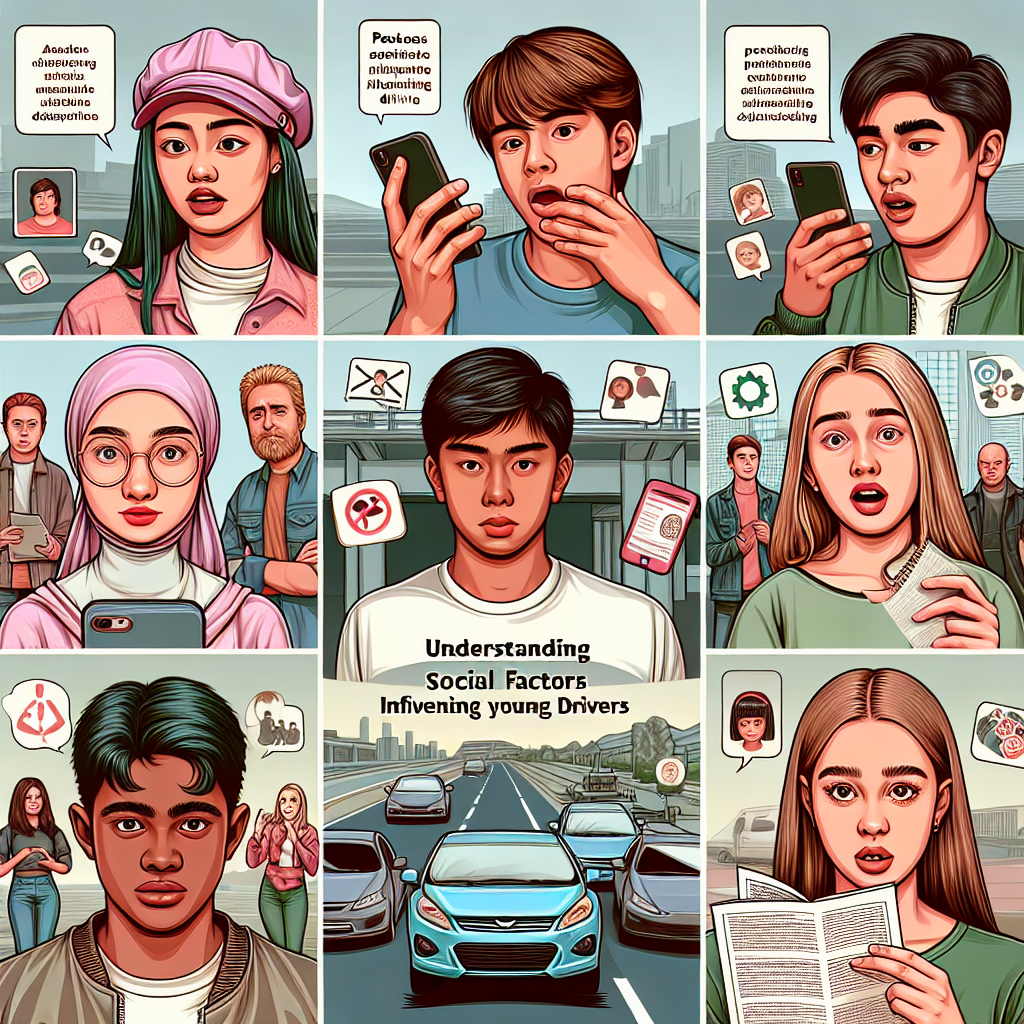Understanding Social Factors Influencing Young Drivers

Are you aware of the social and situational factors that significantly influence driving behaviour among young novice drivers? These factors can shape decision-making skills and lead to risky driving practices. Let’s delve into the key influences and mitigating strategies to enhance road safety.
Risk-Taking Propensity
Peer pressure and a desire to impress can lead to speeding, aggressive driving, and unsafe passing. Young drivers often feel the need to demonstrate their skills to peers, which can result in dangerous choices behind the wheel.
Hostility and Aggressiveness
Stress and social interactions can increase road rage, leading to behaviours such as tailgating and aggressive driving. It's crucial to be aware of how external factors can trigger emotional responses while driving.
Susceptibility to Peer Pressure
This influence can result in impaired driving, not wearing seat belts, and ignoring traffic laws. The urge to fit in can compromise safety, making it vital to understand the importance of personal responsibility.
Tolerance of Deviance
Social circles that accept deviant behaviour can normalize unsafe driving practices like reckless driving and failing to yield. Recognizing these patterns is essential in promoting a culture of safety among young drivers.
Situational Factors
- Environmental Stressors: Heavy traffic, road construction, and poor weather can impair judgment and increase stress.
- Emotional State: Emotions from social interactions or personal issues can lead to aggressive or inattentive driving.
- Time Pressure: Feeling rushed can lead to shortcuts, speeding, and risky behaviours.
Consequences
The impact of these social factors can be profound, leading to risky behaviours such as:
- Speeding: Common among young drivers due to peer pressure and time constraints.
- Unsafe Passing: Driven by aggression and peer influence.
- Tailgating: Results from impatience and hostility.
- Failure to Yield: Ignoring right-of-way rules under pressure.
- Impaired Driving: Social settings with alcohol or drugs can lead to impaired driving.
learn more about the consequences of risky driving practices here.
Mitigating Risks
To promote safer driving habits, consider the following strategies:
- Education and Awareness: Teach young drivers about the dangers of risky behaviours and peer pressure.
- Parental Guidance: Parents should set a good example and discuss safe driving practices.
- Defensive Driving Courses: Help young drivers handle social and situational pressures effectively.
- Regulatory Measures: Enforce strict laws on speeding, impaired driving, and other risky behaviours.
Conclusion
Social and situational factors heavily influence driving behaviour, especially among young drivers. Understanding and addressing these influences can promote safer driving habits and enhance road safety. By acknowledging these influences and taking proactive steps, we can create a safer environment on the roads for all drivers.
For further learning, consider checking out driviology drivers smart driving school, a trusted resource for learning driving techniques and safe driving practices.
Bio
Tariq Jamal is a dedicated industry expert with 27 years of experience in technology, specializing in software architecture, software development, e-commerce, loyalty, and analytics.
Passionate about road safety, Tariq launched DRIVIDIA—a marketplace where learners connect with certified instructors who prioritize safety and carry commercial insurance.
To further promote responsible driving, he introduced the DrivPoints Rewards Program, incentivizing safe road habits. Leveraging technology and artificial intelligence, Tariq is reaching a wider audience with the message that safety is for everyone—and so are the rewards. His insights empower readers to make informed, responsible choices on the road.
Connect with Tariq on LinkedIn: linkedin.com/in/tariqjamal
Related Articles
Comments

-
Date:
2024-11-29 -
Category:
DRIVER BEHAVIOUR -
Subcategory:
Social Factors and Influence -
Tags:

Leave a Comment